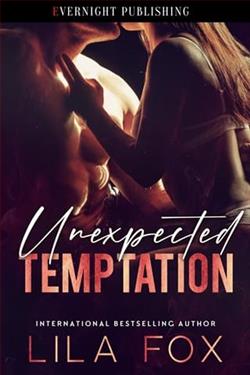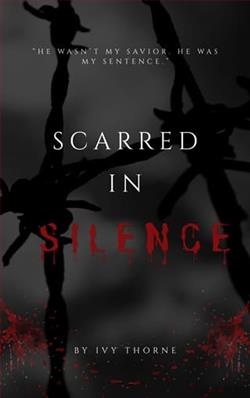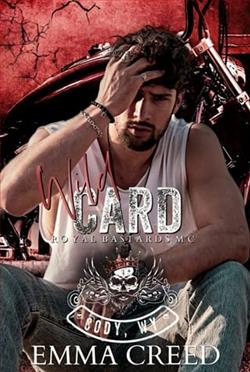Page 1 of The Robber Knight's Love
Feud
Anno Domini[1]1234
Lady Ayla stareddown at the gauntlet.[2]Such a simple piece ofclothing: five-fingered, made of leather, without any embellishmentor embroidery. A glove. Such a simple thing. Just a glove. It meantthe end of the world for her.
She lookedup at the herald[3]who had brought the gauntletand managed a sarcastic smile.
“So niceof the Margrave[4]to be concerned about mywell-being. But please tell him from me that the castle iswell-heated, and if I need to put on a glove, I have dozens of myown. Oh yes, and tell him next time he wishes to send me a gift, tosend apairof gloves. Gives a muchbetter impression.”
The herald more than matched her smile. Andwhy not? He had all the reasons in the world to smile—while shemost certainly had none.
“You knowvery well that this is not a gift, Lady Ayla,” he said, his voicesounding superior and insolent. “The gauntlet is not for you. It isfor your father, Count Thomas. The Margrave von Falkenstein herebythrows down the gauntlet and declares a feud[5]against him and all those he harbors within his walls.”
Lady Ayla stood up. Sitting, she had been onabout equal level with the narrow eyes of the little man who hadcome to declare the end of what had hitherto been her life. Now,standing on the raised platform at the end of the great hall whereher father's chair stood, she towered over him. It made her feelslightly better, but only slightly, because she knew it was all apretense. The man was in control here. Though he was alone, andthey were in her home, her father's castle, surrounded by herfather's servants, he was in control. Or rather, his masterwas.
“Will you be so good as to have your fatherfetched, Milady?” the herald asked. “So that he can pick up thegauntlet, as is the custom?”
“You know very well,” Ayla said in adangerously steady voice, “that my father is a sick old man whocannot even walk on his own legs anymore, let alone fightbattles.”
The herald sighed. “Oh, very well. It is justa formality, after all. Here is the legally binding document.”
He held up a roll of parchment. At one end,Ayla could see the Margrave's seal in shining red wax. She knewwhat it was immediately: the letter of feud declaration. The heraldthrust the parchment at one of her servants, who caught it with ayelp and stumbled back.
Ayla didn't give it a second glance. It wouldcontain many pretty words, but they would not be enough to concealthe real content, the same ugly message sent by the gauntlet on thestone floor in front of her:I want what isyours, and I will take it by force.
“On what grounds does your master declarethis feud?” she demanded, her voice trembling now. With rage? Fear?She wasn't quite sure herself. “What ill have we ever done him?What justification does he have for his actions?”
“Justification?” Hiding a smirk, the heraldshrugged. “I'm sure one can be found—after he has burned yourcastle to the ground and made your lands his own. He is in nohurry.”
That dastardly comment would have left LadyAyla speechless, or more likely disbelieving, had she not known theman behind the words. Falkenstein was not a man to make idlethreats; he enjoyed making real ones far too much.
“But,” the herald continued, “there might bea way to avoid unpleasantness and spare your people the hardshipsof the feud to come.”
Ayla frowned. “Is the Margrave vonFalkenstein getting soft in his old days? He has declared fivefeuds over the last three years, and in none of those cases did hehave a shred of mercy for his victims.”
“Ah, yes,” the herald concurred merrily.“But, you see, in none of those cases did his adversary have a fairmaiden for a daughter who is renowned for her beauty far beyond theborders of her father's lands.”
A cold shiver ran down Ayla's spine. “What isthat supposed to mean?”
“That,” the man said, flourishing his whiteherald's staff, “is supposed to mean that my master did not justsend me here to bring you this gauntlet. He sent me here to bringyou two things. Two different accessories, you could say, fromwhich you must choose. Either,” he pointed to the floor where thegauntlet still lay, “you pick up this, or,” he reached into hispocket and held up something small and shiny, “you put this on yourring-finger.”
Ayla gazed at the golden ring in the herald'shand, horror-struck. And she had believed her situation couldn'tget any worse.
“I see,” she said, around the lump in herthroat.
The heraldsmiled at her again, this time suggestively. “The Margrave hasheard much of your manifold attractions, Milady.” His gaze traveledup and down her body in an insolent manner. “Golden hair, amaidenly figure, stunning blue eyes—all the bards[6]sing of you as beautiful and amiable.”
Ayla could feel her face growing hot and hersmall fists clenching.
“Personally,” the herald continued with aderisive smirk, “I must admit that I can't quite agree with thebards on the latter point. I prefer ladies who are a little moredocile. Yet the Margrave will have no difficulty in dealing withyou, I'm sure.”
“Indeed?”
Ayla wasn't sure whether her eyes could bedescribed as “stunning”, but at that moment she wished she reallycould stun with just a look, or maim or incinerate perhaps? Thatwould take care of the impudent cur in front of her. She glared atthe herald with fiery intensity.
“Yes, indeed. And, in spite of your faults,he would be more than willing to enter into an alliance with youand unite your lands into one,” the herald continued.
“I'm sure he would.”















